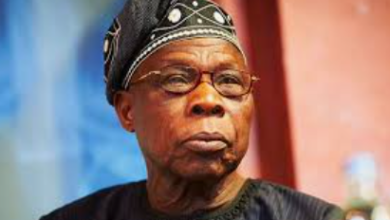Calls for Accountability: Lawmaker Ikwechegh Faces Prosecution For Assaulting E-Hailing Driver

The recent incident involving Alex Ikwechegh, a first-term lawmaker representing Aba North/Aba South Federal Constituency of Abia State, has sparked outrage, highlighting an abuse of power and the systemic issue of impunity among Nigeria’s political elite. In a video circulating on social media, Ikwechegh is seen physically assaulting Stephen Abuwatseya, an e-hailing (Bolt) driver, and threatening to make him “disappear” while claiming immunity from legal consequences. This disturbing display of power dynamics not only reflects disregard for the rule of law but also undermines the dignity and rights of ordinary Nigerians.
Abuwatseya, the driver, was reportedly delivering snails ordered by Ikwechegh from a vendor, yet the lawmaker refused to pay for the delivery. He appeared agitated after the driver requested him to come outside his residence to receive the parcel. For a politician to react so violently over what should be a straightforward transaction is alarming and points to a deeper issue of entitlement and disrespect toward citizens, particularly those in service roles. This incident has fueled calls for accountability, with many Nigerians questioning the qualifications and conduct of their elected leaders.
The quick response by the Nigerian police, who condemned the act and summoned Ikwechegh for questioning, is commendable. However, there is a pressing need for a thorough investigation to ensure that justice is served. The House of Representatives, too, should establish stricter measures to hold lawmakers accountable for misconduct outside their legislative duties. This case underscores the necessity for the House to implement a code of conduct with serious repercussions for those who abuse their positions.
Ikwechegh’s rise to office adds complexity to this issue. He assumed his position not through direct electoral victory but as a result of a tribunal’s decision, which annulled the previous election due to certificate forgery charges against the former representative. This judicial intervention effectively bypassed the people’s choice, leading to a disconnect between Ikwechegh and his constituents. Many now question whether this indirect ascent has contributed to his apparent detachment from public accountability and the expectations of his office.
Although Ikwechegh’s party, the All Progressives Grand Alliance (APGA), has condemned his actions and announced a disciplinary review, this step seems more a political maneuver than a meaningful stance on character and leadership standards. Political parties must do more than respond reactively to misconduct; they must rigorously vet candidates before elections to ensure they represent values of integrity and public service.
This incident also draws parallels with a similar case in 2019, where Nigerian Senator Elisha Abbo assaulted a woman in a public setting. Though Abbo faced public backlash and a hefty fine, accountability in such cases is still rare in Nigeria. In contrast, countries like the United Kingdom address even minor misconduct by public officials swiftly, as seen in the recent suspension of Labour MP Mike Amesbury after an alleged altercation. Such decisive actions set a standard Nigeria can aspire to.
Ultimately, Nigeria’s government and its representatives must confront these abuses of power directly. Speaker of the House and other leaders must prioritize integrity and transparency to restore public trust. Leaders must understand that their positions are to serve, not to wield unchecked power, and that any breach of public trust must be met with immediate consequences. In a democratic society, respect for citizens is paramount, and Nigerian citizens deserve nothing less than accountability and integrity from those who hold office.



